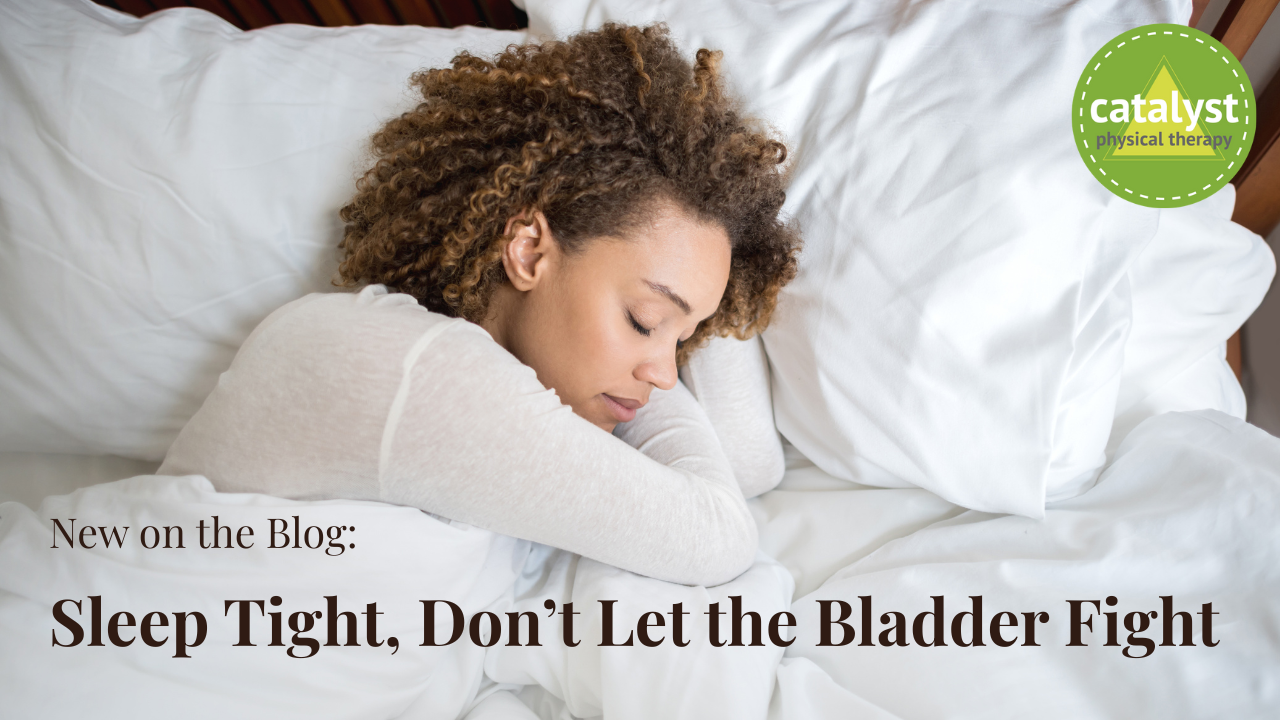Sleep Tight, Don’t Let the Bladder Fight
Oct 22, 2025
Author: Dr. Anisha Drake PT, DPT, WCS
Who else has been there? You're sleeping soundly, and then your bladder decides it's time to wake up. For some, it's just a minor inconvenience, but for others, it can be a recurring problem that disrupts sleep and daily life.
The Bladder's Nighttime Habits
Let's explore what's happening between your brain and bladder while you sleep. Normally, your brain produces less urine at night, and your bladder enters "storage mode," relaxing and increasing its capacity. However, if you frequently wake up to urinate, your bladder might not be entering this storage mode, making it more sensitive and prone to sending signals to your brain.
Common Thoughts and Misconceptions
When faced with nighttime awakenings, people often think:
- "I actually do have to go because my bladder is emptying." Did you know that we always have urine in our bladder to keep residual tone?
- "I have a small bladder, which makes me go more throughout the night." We'll explore this idea more below.
- "I drink a lot of water throughout the day." It's essential to have steady fluids throughout the day, but as bedtime approaches, it's a good idea to switch to sipping water as needed.
- "It's a normal part of getting older." While it's common to experience some disruption in sleep patterns as we age, getting up 1-2 times per night is normal, but more frequent awakenings can disrupt sleep quality.
The Feedback Loop
Imagine a conversation between your bladder and brain:
Bladder: "I'm getting full!"
Brain: "It's nighttime; let's empty it."
Bladder: "I feel better; next time I won't wait as long."
Brain: "Okay, got it!"
This cycle can lead to more frequent nighttime awakenings. To break this cycle, we need to disrupt the communication between your bladder and brain.
Taking Control
Start by tracking your bladder habits:
- Note the time you wake up to urinate each night and look for patterns.
- When your bladder signals, ask yourself: "How urgent is it?" If it's mild, try deep breathing exercises, muscle relaxation, or counting backwards.
The "Small Bladder" Excuse
Bladder capacity varies from person to person, and frequent urination can be caused by various factors, including medical conditions, hormonal changes, or certain medications. While these factors may contribute to your symptoms, practicing good sleep hygiene and taking control of your bladder habits can make a difference.
Reclaim Your Sleep
By understanding the bladder-brain connection and taking steps to manage your bladder habits, you can break the cycle of nighttime awakenings and start sleeping better.


